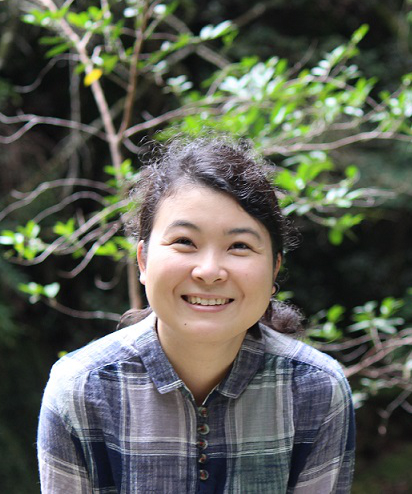Kaoru Tsuji, Ph.D.
Associate Professor, Division of Biodiversity, Ecology and speciation
Research Interests
I am an ecologist whose primary research focus is on the causes and consequences
of sexual differences observed among individuals of the same species within
a broad context of ecological communities consisting of many different
species.
My main study organisms have been the polygamodioecious trees, Eurya japonica and E. emarginata, and the insects and microorganisms that interact with these plants. Female
and male flowers of the Eurya trees show different traits, and my research has documented how this sexual
difference affects a variety of insects and microorganisms. For example,
I have found that the behavior of flower-visiting flies differs according
to the sex of the flowers they visit. I have also found that a wide range
of flower visitors, including flies, bees, and months, prefer to visit
either female or male flowers, although they visit both sexes. In addition,
the survival, growth, and evolution of oviposition behavior of flower-feeding
moths change dramatically depending on plant sex. I have also found that
the abundance and species composition of nectar-colonizing bacteria and
yeasts differ greatly between female and male flowers of the Eurya trees.
The main goal of my research is to continue to better understand how sexual differences affect a variety of other species in the ecological community and how the changes that sex causes in other species affect the evolution of sexual traits.
Research Focus
・Sexual dimorphism and species diversity
・Plant–pollinator–microbe interactions
Recent Publications
- Tsuji K, Fukami T. (2020)
Sexual dimorphism and species diversity: from clades to sites.
Trends Ecol. Evol. 35: 105-114.
- Tsuji K, Kobayashi K, Hasegawa E, Yoshimura J. (2020)
Dimorphic flowers modify the visitation order of pollinators from male to female flowers.
Sci. Rep. 10:1-11.
- Tsuji K, Fukami T. (2018)
Community-wide consequences of sexual dimorphism: evidence from nectar microbes in dioecious plants.
Ecology 99:2476-2484.
- Tsuji K, Ohgushi T. (2018)
Florivory indirectly decreases the plant reproductive output through changes in pollinator attraction.
Ecol. Evol. 8: 2993-3001.
- Tsuji K, Dhami MK, Cross DJR, Rice CP, Romano NH, Fukami T. (2016)
Florivory and pollinator visitation: a cautionary tale.
AoB PLANTS. plw036.
Contact
Office: Building C, room 324
Tel: +81-78-803-5707
E-mail: ktsuji@people.kobe-u.ac.jp
 JAPANESE
JAPANESE 